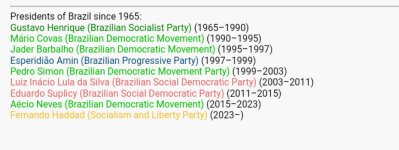This was my entry for last month’s HoS list challenge! This month’s challenge is themed around Christianity, the link is in my sig, and there’s still a week or so to get your entries in!
We're Here Because We're Here
Emergency Commanders of the British Expeditionary Force:
1916-1920: Field Marshal Douglas Haig
1920-1922: General Sir Hubert Gough
Chairmen of the Somme Soldier's Council (British):
1922-1928:
Siegfried Sassoon
1928-1932: Harry Macmillan ("Comrades")
def 1928: Henry Rawlinson ("General Staff"), Guy Baring ("Union Jack"), Adrian Carton de Wiart ("Advance!")
1932-1936: Raymond Asquith ("Comrades")
def 1932: Rupert Inglis ("Union Jack"), Adrian Carton de Wiart ("Advance!")
1936-
0000: John Tolkien ("Union Jack")
def 1936: Adrian Carton de Wiart ("Advance!"), Liam O'Flaherty ("Comrade-Workers"), Raymond Asquith ("Comrades")
Albert clutched his pipe between his teeth, and tried to breathe in deeply with some sense of satisfaction. This was, after all, the garden. Or as close to a garden one could get out here. Gerald seemed confident that one or two of the trees were alive, and that he'd get them to take leaf eventually, but for now the little copse was merely a skeletal outline. Still, it was the best thing to look at for a mile in each direction--beyond them was the mud of Flanders. Grey and brown and brownish-grey, it stretched out so flat and undisturbed, even pockmarked with shell craters and bunkers and silhouettes of barbed-wire as it was, that in the pale pre-dawn fog you could almost believe it went on forever.
That was because it did.
Twenty years. By John's own count, reckoning from what they'd found in Haig's office (although it wasn't as if those records were half-reliable--how long did it really take him to notice?), that was how long it was--twenty years since this very day that this battlefield, and everyone on it, had fallen out of the world. No London, no Paris, not even an Abbeville. Just an endless waste, in both senses of the word, where the war played itself out without any outside disturbances. As far as could be discerned from whatever documents Gough hadn't burned (for heat, not for secrecy), Haig had been thinking of the whole thing as a temporary blip he could ignore, hoping not to have to tell anyone and face a mutiny. He thought, maybe, it'd all be over by Christmas.
Twenty years!
The wind whistled through the assemblage of blankets and bits of coat Albert had wrapped around himself. There were still supplies, on occasion, that appeared in the old train stations and depots out of some aether at the edge of the fog, but they weren't exactly generous, and they were nearly out of new clothes. At least the food kept up at something like a reasonable rate--they still got the same rate of bully beef, plum-and-apple, and hard tack that they got the first day they landed in Flanders. Very little else, though. Tolkein's big plank had been the food and plant situation, and they'd found a few old sacks of grain in a basement somewhere--Alan could just make out Gerald and a few Union-Jackers by the tree, carefully prodding at their overturned patch of ground. He didn't see the point, really. It wasn't as if they could mill it, or bake it, once it was grown.
Unconsciously, Albert cradled his pipe with his hands against a gust of wind, before remembering it wasn't lit. That was another thing they'd long since run out of--tobacco.
That was what had done Gough in, in the end. It took until Hague dying, blown up at some ammunition dump he was visiting, for the general staff to finally admit the obvious about what no letters from home, no leave, and no new faces actually meant, but Gough could have saved the situation. He was already trying to get the Prince of Bavaria around the table for a ceasefire--if he'd held out a month, he'd be the man who ended the war. It was just that he was sitting on thousands of Tommies for whom nicotine withdrawal was the cherry on top of cold, hunger, damp, and loneliness, and as soon as someone leaked that Gough was speaking to the Germans but didn't leak why, he went up in a blaze of his own.
An old poster flapped in the breeze--something knocked together with a few stencils and an old newspaper. It had to be old, even if the face of Sassoon wasn't quite visible, because no-one had the paper anymore to waste.
The councils were supposed to be better. Albert did feel they had been, mostly. Sassoon was a decent chap, had hammered out a ceasefire first thing, could write a droll line, and he certainly wished the man well in retirement--he had some hut right down at the other end of the line with the French, looking out at the fog where Calais should be. That Macmillan chap had managed to clear up what was left of the stupid excuse for a war that was still going on, and it was a shame that a few of the remnants of the German high command had managed to put that barrage together. Whose idea it was to put Asquith in charge of the peace, Alan wasn't really sure--maybe the idea was that being Prime Minister was genetic? It wasn't as if anyone wanted to step up who actually wanted to end things off properly.
The problem was, "Little Squiffy" was never really the right man for his faction, the soldiers who wanted to down rifles and escape any legacy of the men who sent them to war. Albert remembered Macmillan coming through his trench, and he'd stopped at every billet, shaking Gerald's shit-stained hand and listening about the ever-growing rats' abuses and the ever-growing toll of typhus and gangrene that was a far worse enemy than any German had ever been. The man made Albert look like a beggar--he was practically an aristocrat--but he was willing to stoop a bit if he had to. Asquith never stooped for anyone. You could respect him, but not like him, and that's what did for him, more than anything he actually did.
Just at the edge of the trench, some woman was picking through with a donkey, carrying things for sale--German sausage rations and French tins of soup and what looked like her own daughter, a girl young enough to have never known anything but the fog and the mud.
Albert wanted to wave them down, but thought better of it when he saw the little Dutch flag they were waving. A few lads still viewed that as "fraternising with the enemy" somehow. Letting civilians transfer to other sectors based on their language wasn't that unpopular in theory, given that the French traded half of the wine ration they somehow still got for it, but people had hated it in practice. There were only a few women in the British section after that trade--what set Asquith tumbling, though, wasn't that, but the rumours of what he had planned for the remainder. Tommies who'd sat by as the same girl was traded around a regiment like cigarettes once were were up in arms over rumours of seralgios, because it was something someone else was getting.
One of the men picking at the field had slipped and cut his mate on his hoe. Albert idly hoped it didn't get infected; they were starting to run out of wound-cleaning supplies, and the Germans were being a lot stingier with their sulfa drugs.
He knew he shouldn't feel so bitter about the whole replanting project, really. Tolkein meant well, he really did. And he'd like to see trees again, certainly, the human eye wasn't meant for just mud and barbed wire. It was just...twenty years. Before he'd left, he'd looked down at his son in his swaddling clothes, and told him he'd be back before he knew it. That son would have grown into a man by now, never knowing his father as anything more than an old photo on the mantlepiece. And a tree couldn't make that better. Nothing could.
It was all so bloody
futile. The men out by the ragged stump of the tree knew that they'd never grow anything in the poisoned mud of no-man's-land, just like the men around Asquith knew there was no way to bring back camaderie without the threat of death, and those Communists knew no ideal society could flourish in these stinking ditches. Something in Albert sympathised with de Wiart--at least that lunatic knew that he could get that death if he wanted it. It just seemed a bit selfish to demand everyone come with him. There'd been a few times that Albert had looked out over the minefields, and wondered, but something had always held him back--maybe the fear that he was already dead, and dammed to hell, and that he'd wake up right here for another gray day of stomping along the edge of a trench against the wind and trying to find something to do with his life in the land of empty mud and death. Other than ask why.
Why? What fate had thrown them here, into this void? Was it the punishment of the divine for war? Some untested weapon Hague found? A cosmic accident, time becoming unstuck, of no more meaning than the weather?
There was some smoke coming from the dugout. Albert shoved his pipe back into what passed for his pocket, tried to banish those thoughts, and headed back down--with any luck, Eddie was there, and ready to play a game of cards that was the only new thing for the past twelve years.
Why was he here? Why were any of them here?







